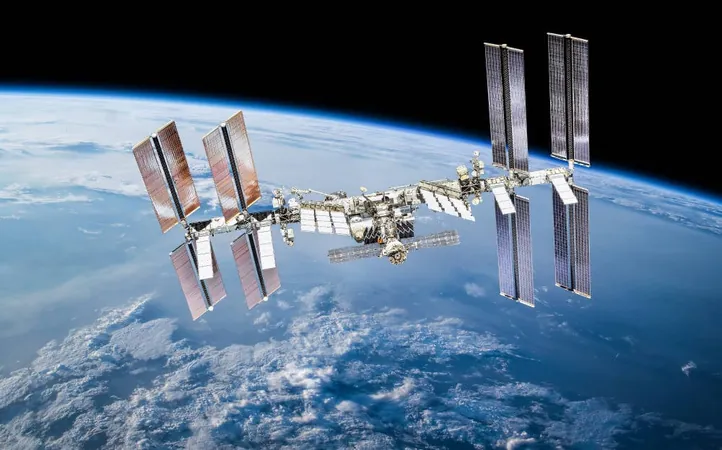
JAXA's Groundbreaking Initiative: Creating a Digital Twin of Its ISS Module
2024-11-01
Author: Yu
Introduction
Japan's space agency, JAXA, has just made a monumental announcement that could reshape our understanding of space technology and exploration. On Thursday, JAXA unveiled plans to develop the world’s first open source digital copy of its International Space Station (ISS) module, an innovative project dubbed the “Space Digital Twin.”
Collaboration with SpaceData Inc.
This ambitious project is a collaboration with the tech firm SpaceData Inc., known for its expertise in space-related digital applications. The digital twin aims to simulate critical environmental data obtained from Kibo, Japan’s research module attached to the ISS, including vital metrics like temperature, humidity, airflow, and illumination.
Recreating Int-Ball
A vital component of this digital twin project is the recreation of Int-Ball, an autonomous drone that operates within the Kibo module. JAXA envisions this aspect as a means to provide a realistic simulation environment for space robotics, allowing for better preparation and experimentation before actual missions are launched.
Benefits of Simulating Space Environment
JAXA emphasizes that simulating the space environment in a digital realm will facilitate a virtual testing ground for new space technologies and entrepreneurial ideas. This approach drastically reduces costs associated with physical launches, offering a more accessible and efficient pathway for testing various experiments and technological tools without expending precious resources.
Potential Applications
The potential applications of the Space Digital Twin extend beyond traditional scientific boundaries. JAXA projects that this initiative could transform industries such as gaming, streaming, broadcasting, and even virtual space tourism. The digital twin might just be the key to unlocking unforeseen business opportunities in space, as suggested by JAXA’s senior advisor Yusuke Matsumura. He believes that this project could ignite the creation of businesses that have yet to be conceived, citing the potential for new uses for space as commercial stations begin to emerge.
Long-term Vision
Despite the ISS being scheduled for retirement in 2030, JAXA is moving forward with this project, seeing it as a long-term investment in the future of space exploration. Interestingly, NASA is also adapting its strategy by focusing on commercial services for low Earth orbit research, which aligns with JAXA’s forward-thinking approach to a future where the space economy thrives.
Conclusion
As we look ahead, Matsumura’s vision for the next decade is exciting: 'I hope that in ten years, we’ll look back and recognize this as the moment when the space economy truly began.' Stay tuned, as JAXA’s Space Digital Twin could very well be the springboard for the next giant leap in space exploration technology!



 Brasil (PT)
Brasil (PT)
 Canada (EN)
Canada (EN)
 Chile (ES)
Chile (ES)
 España (ES)
España (ES)
 France (FR)
France (FR)
 Hong Kong (EN)
Hong Kong (EN)
 Italia (IT)
Italia (IT)
 日本 (JA)
日本 (JA)
 Magyarország (HU)
Magyarország (HU)
 Norge (NO)
Norge (NO)
 Polska (PL)
Polska (PL)
 Schweiz (DE)
Schweiz (DE)
 Singapore (EN)
Singapore (EN)
 Sverige (SV)
Sverige (SV)
 Suomi (FI)
Suomi (FI)
 Türkiye (TR)
Türkiye (TR)